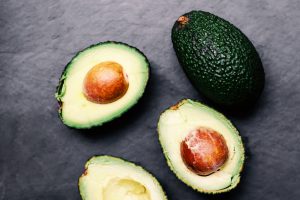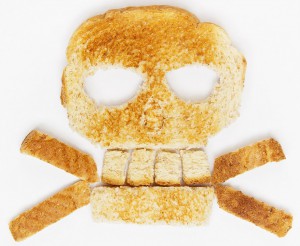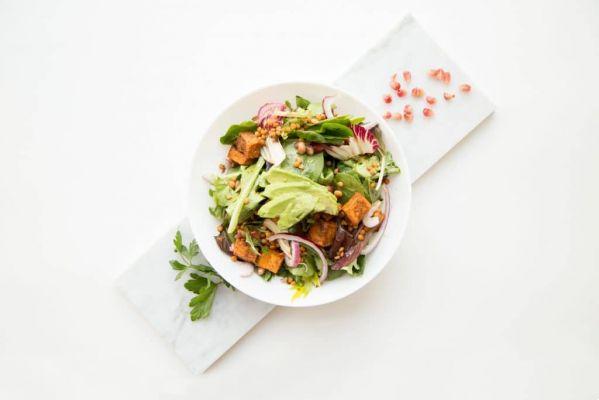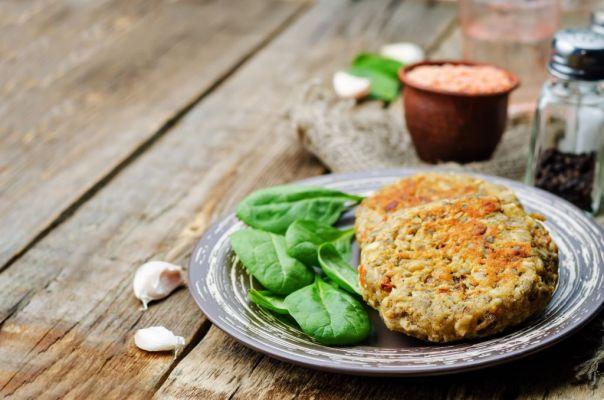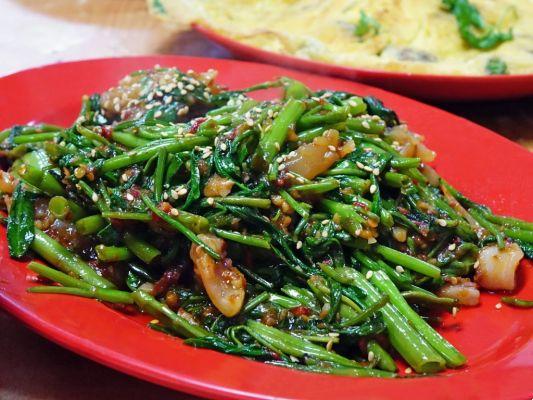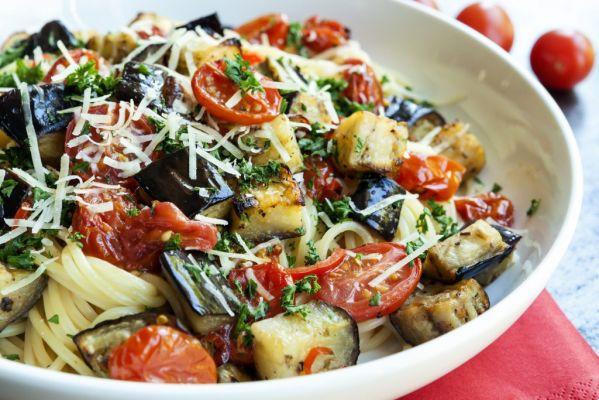The urge to eat should come only from hunger. For example, whoever wakes up at 6:3 in the morning, three hours later is hungry and eats a piece of fruit. This person is likely to have lunch at noon. At 6 pm he has a light snack, dinner at 10 pm and the last snack at XNUMX pm at the latest. Controlled hours, quantity of food ditto.
However, even these regulated people make exaggerations from time to time. After a hard day at work, a fight with your boyfriend or girlfriend, with family members, you may feel an immense desire to eat chocolate or suck on ice cream. After satisfying the desire, comes the feeling of well-being. But, those who have emotional balance, know that such behavior is not productive. The individual comes to his senses and his reason returns to speak and triggers the alert “do not use food to camouflage your problems”.
But what about who doesn't have emotional balance? This type of person eats for all reasons, except hunger. She opens the fridge all day and takes out everything she can. Usually, sweets are the targets of this food rage, however, "comfort food", the food that brings comfort can also be salty. A platter of fries lasts less than an episode of
sitcom. Chocolate bars are devoured in minutes. Ice cream pots don't last less than the time needed to read this article.
binge eating
Until the 50s, the behavioral patterns of obese people were ignored. After this period, scholars realized that they were depressive, had personality and mood disorders. The analyzes carried out with obese people led psychologists to develop the concepts of Binge Eating Disorder (BED).
BED is related to obesity, as there are no methods for weight compensation, as in bulimia. The disorder affects men and women, but adolescents who go through affective, social and bodily transformations, where physical appearance is an important factor of personal identity and women between 20 and 30 years old are the biggest victims of binge eating.
This disorder is the large intake of food in the period of two hours. During the process, the person loses control over what and how much they eat. To be characterized as binge eating, such behavior needs to happen at least twice a week for six months, without vomiting or any other measure to prevent weight gain.
why do we feel hungry
- When the stomach is empty, the production of the hormone ghrelin increases;
- The hormone tells the hypothalamus that we need to eat, the body starts feeling hungry;
- When food reaches the stomach, ghrelin decreases and we feel less hungry;
- Digested food leaves the stomach and enters the intestines. In it, the hormone, GLP-1 is activated, functioning as a kind of brake for the brain to stop hunger.
Differences between hunger and compulsion
Hunger
- the stomach growls
- weakness / dizziness
- tiredness / discouragement
- Bad mood
- we eat any food
- Anxiety
- uncontrollable craving for food
- We want to eat something specific
- we eat with our eyes
- loneliness / depression
Causes of binge eating
Several factors are linked to binge eating. They are usually present in all cases.
- Stress
A lot of work and tight deadlines, not being able to carry out school/academic activities. Any situation that causes the individual to feel pressured leads to stress. In these cases, food can be an escape valve.
- emotional trauma
Emotional compulsion can be associated with traumas such as psychological and physical violence and sexual abuse.
- Lack of self-esteem
People without self-esteem cannot express their emotions. Your frustrations are taken out on food.
- Diets done wrong
Very strict diets deprive people of various foods. They become depressed and anxious for food. Any negative event turns the trigger for compulsive eating.
Binge eating is a psychic conflict. The individual eats uncontrollably, seeking a little pleasure to relieve pain. For some time, he even manages to have this well-being, but soon after the food is over, the sadness returns, and it is necessary to eat again. It's a behavior similar to drug addicts. Like drug addicts, people with Binge Eating Disorder are slow to recognize the degree of destruction of their behavior and thought patterns. In this disorder we see the following behaviors:
- eat in secret
The compulsive is ashamed of his condition. In front of others, he eats properly, but when he is away, his food rage comes to the fore. He always has cookies and chips stashed away for late-night crises.
- Eat fast
People who were starved in childhood may think that food might disappear. Eating fast is an unconscious way to avoid further deprivation.
- Disgust towards eating habits and appearance
Those who eat compulsively reject healthy foods because they do not bring immediate benefits. The pleasure of a pizza or chocolate bars is immediate.
People who binge eat know that the behavior worsens their internal conflicts, in addition to causing health problems. But, like any individual who goes through psychological disorders, those with Binge Eating Disorder deny their problem. The mechanisms for denying the problem are as follows:
- Rationalization
Find someone responsible for overeating. Not having the time or money to buy healthy foods can be an excuse.
- selective inattention
Women (and men too!) tend to check out the look in the elevator mirror or in shop windows. Obese people don't do this so they don't see they're overweight.
- Displacement
Adapt interests to the habit of overeating. Cinema only with lots of popcorn buckets and huge glasses of sodas. Go to museums in regions where there are many restaurants and eateries. The person does not enjoy the program and only thinks about the “reward” for having gone some time without eating.
- Isolation
The mind blocks any type of negative emotion related to compulsion. Wearing a size 52 jeans is no longer a problem. Now, not being able to eat whenever you want and limiting the amount of food, that really takes the sleep away from the compulsive.
- reaction formation
To think that fat means health and thinness means disease.
Family and friends are essential for those who suffer from this disease. They need to be informed about the disease, in order to understand that overeating is not of their own volition, nor that the individual's inertia is not laziness. Family and friends need to be a support network. Frank conversations, without judgment, just with the exposure of the evils brought by compulsive behavior should happen as soon as someone notices this abnormality. Referring the loved one for psychological treatment is an act of love.
psychotherapeutic approaches
 The most recommended psychotherapeutic approaches for the treatment of binge eating are: Cognitive-Behavioral Therapy, Behavioral Therapy, Focal Psychotherapy, Interpersonal Psychotherapy, Psychodynamic Psychotherapies, Self-Help Treatments and Psychoeducational Interventions. All can be applied individually or in a group.
The most recommended psychotherapeutic approaches for the treatment of binge eating are: Cognitive-Behavioral Therapy, Behavioral Therapy, Focal Psychotherapy, Interpersonal Psychotherapy, Psychodynamic Psychotherapies, Self-Help Treatments and Psychoeducational Interventions. All can be applied individually or in a group.
The most satisfactory results to Cognitive-Behavioral Therapy. This line of psychotherapy was developed by psychologist Aaron Beck. It is a set of therapeutic techniques aimed at changing patterns of thinking and behavior. The treatment performed by Cognitive-Behavioral Therapy lasts from 12 to 16 sessions. The focus of sessions aimed at people with binge eating is distorted thoughts about the image. Self-assessment centered on body weight and shape, lack of self-esteem and perfectionism. The therapist also works with the issue of food reeducation.
When the patient does not respond to therapy and the compulsion associated with a severe depressive condition with risk of suicide, he is referred to a psychiatrist. Drug treatment begins with selective serotonin reuptake (Fluoxetine, Fluvoxamine, Paroxetine or Sertraline). Doses can be increased every two to three weeks, always observing the effects on binge and mood. The indication is that the medication be given for a year, but everything will depend on the evolution of the patient.
Tips to help compulsive
Psychotherapy and medication are just two pillars of this treatment. The guidelines passed by the psychologist through conversations and techniques are strengthened by the maintenance carried out outside the office. We have seven important tips to help the compulsive and also to prevent the behavior from developing:
- Eat every 3 hours
Have light snacks every 3 hours. A fruit, glass of yogurt or cereal bar. This keeps your metabolism going, which is good for weight loss, plus you won't be hungry at the next meal.
- Make your plate in the kitchen
When pots and pans are on the table, it's hard to control the urge to eat everything. Arrange your plate in the kitchen, preferably in the presence of someone else.
- have time to eat
Set eating times so that your body has a routine.
- start with vegetables
They have fiber and water, which give you satiety. Always start your meals with salads.
- eat ramble
When we eat fast, the brain cannot identify the food and pass the feeling of satiety. Therefore, eating slowly and chewing food brings more satisfaction.
- Brushing teeth after meals
Hygienic act that reveals to the brain that you have finished your meal, thus, the desire to eat decreases.
In the fight against binge eating, food reeducation is very important. Find out which are the most suitable foods for those who suffer from this disease, or to avoid it:
Foods rich in tryptophan
Amino acid not produced by the body that is conquered by food. Tryptophan is related to the production of serotonin, a hormone linked to well-being. Meat, eggs and milk are the main sources of this amino acid.
Foods rich in B6 (pyridoxine) and vitamin B9 (folic acid)
 Responsible for the synthesis of serotonin. Studies link the lack of these vitamins to mood swings. Consuming red meat (beef liver is a source of both vitamin B6 and vitamin B9), chicken, whole grains, beans and milk help in the fight against anxiety symptoms.
Responsible for the synthesis of serotonin. Studies link the lack of these vitamins to mood swings. Consuming red meat (beef liver is a source of both vitamin B6 and vitamin B9), chicken, whole grains, beans and milk help in the fight against anxiety symptoms.
Foods rich in vitamin C
Vitamin C reduces the level of cortisol, a hormone responsible for passing on the signs of stress in situations of anxiety. Vitamin C intake strengthens the nervous system, promoting quality of life. Acerola, pineapple, orange, lemon and some vegetables such as tomatoes and peppers provide a large amount of this vitamin. Consume these foods raw, because heat degrades them.
Carbohydrate-rich foods
Carbohydrates serve to provide energy to carry out our activities. When we consume fruits like apples and pears, and whole fiber our blood glucose level increases, causing well-being and a lot of mood.
Turmeric
Also known as ground saffron or Indian saffron, turmeric is grown in Asian countries. Research reveals that the spice increases the level of serotonin. To enjoy this benefit, add a teaspoon to your daily diet.
Binge eating is an emotional disorder. People who are professionally overworked, with histories of psychological, physical, and sexual violence, or any other issues that destroy self-esteem are prone to the disorder. Binge Eating Disorder doubles the suffering. Initial problems are not resolved and physical and emotional health issues arise. Obesity and depression lead the individual to isolate himself.
Family and friends need to be careful. Often, the person normally eats in front of them. But when they are alone, they discount everything they haven't eaten. Family and friends may suspect that something is wrong when the patient prefers to be alone. Inspecting the room also reveals problems. Compulsives often hide packets of cookies, snacks, and sweets. As seizures most often occur during the night, try going to the kitchen.
Any signs of inappropriate eating behavior talk to your relative or friend. Don't fight him, just explain that the physical ailments brought on by compulsion are made worse by depression. Suggest that he seek professional help and make yourself available. Compulsives are people who don't know how to express their emotions, so leave them free to talk about them. Act like a priest in the confessional. Understanding is a powerful ally in any recovery process.
- Text written by Sumaia Santana from the Eu Sem Fronteiras Team.









